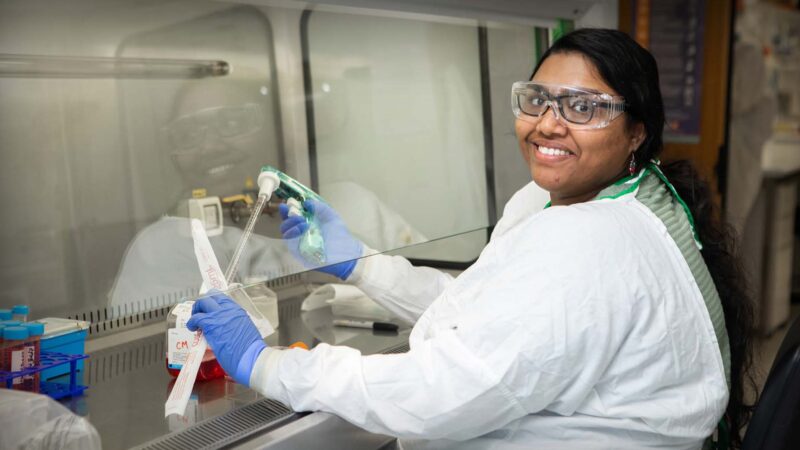STEM CELL THERAPIES FOR ENTERIC NEUROPATHIES
Dr Lincon Stamp,
Senior Research Fellow & Group Leader,
Department of Anatomy and Physiology,
School of Biomedical Sciences,
The University of Melbourne, Victoria, Australia
RESEARCHER PROFILE
Filmed in Melbourne, Australia | October 2025
Dr Stamp is a Group Leader in the Department of Anatomy and Physiology at the University of Melbourne, Australia. Dr Stamp’s PhD research (with Prof Martin Pera, Monash University) focused on the derivation of hepatopancreatic progenitors from human embryonic stem cells. He then joined the lab of Dr Don Newgreen at the Murdoch Childrens Research Institute where he began working on development of the enteric nervous system (ENS), before joining Prof Heather Young’s lab at the University of Melbourne, where he focused on developing a stem cell therapy to treat gut motility disorders such as the paediatric enteric neuropathy Hirschprung disease.
His lab, which he runs together with Dr Marlene Hao, is now focused on the development, plasticity, and cell and gene therapies for the digestive system, with a particular focus on the enteric nervous system.
Dr Stamp has a strong national and international network of collaborators, including key clinical and consumer connections, and has published high impact studies in top tier journals including Gastroenterology, JCI and Nature Reviews Gastroenterology and Hepatology.
He has had success at securing significant government (ARC, MRFF), philanthropic (NSCFA, REACH Foundation) and industry (Takeda Pharmaceuticals) funding, has strong ties within the Australian and international stem cell communities, and is the currently the President of the Australasian Society for Stem Cell Research (ASSCR).
Source: Supplied
You Might also like
-
Next Generation Condom Contraception, Dr Simon Cook
Dr. Simon Cook, Co-Founder and Executive Director of Operations at Eudaemon Technologies, has had a diverse and impactful career journey. Beginning with a background in biotechnology from the University of Wollongong, his focus on bacterial pathogenesis during his PhD led him to study Group A Strep and the streptokinase protein.
Subsequently, Dr. Cook ventured into a unique project funded by the Bill and Melinda Gates Foundation, where he became involved in the development of a next-generation condom to address existing issues such as feel, odour, and taste.
-
Novel immunotherapies in lymphoma
Dr Sean Harrop is a dual-trained haematologist having completed his clinical and laboratory haematology training at the Peter MacCallum Cancer Centre, Royal Melbourne Hospital and St Vincent’s Hospital Melbourne. He is the current clinical haematology fellow (aggressive lymphoma) at Peter MacCallum and a PhD student in the Cancer Immunology Program in the Neeson Lab.
-
Nanoparticles & microparticles to combat antimicrobial resistance
Dr Anjana Jayasree is an emerging research leader in biomaterials, tissue engineering and nanotechnology, recognised internationally for her innovative work on antimicrobial nanoparticles and regenerative therapies. A Postdoctoral Research Fellow at The University of Queensland, she operates at the intersection of materials science, drug delivery and cellular biology, developing advanced metallic-based nanotechnologies to improve both human and animal health outcomes. Her expertise spans nanoparticle synthesis, cell–material interactions, and the design of sophisticated in vitro models to investigate soft-tissue integration, osseointegration, angiogenesis and biofilm formation.

 https://orcid.org/0000-0002-8925-7894
https://orcid.org/0000-0002-8925-7894


